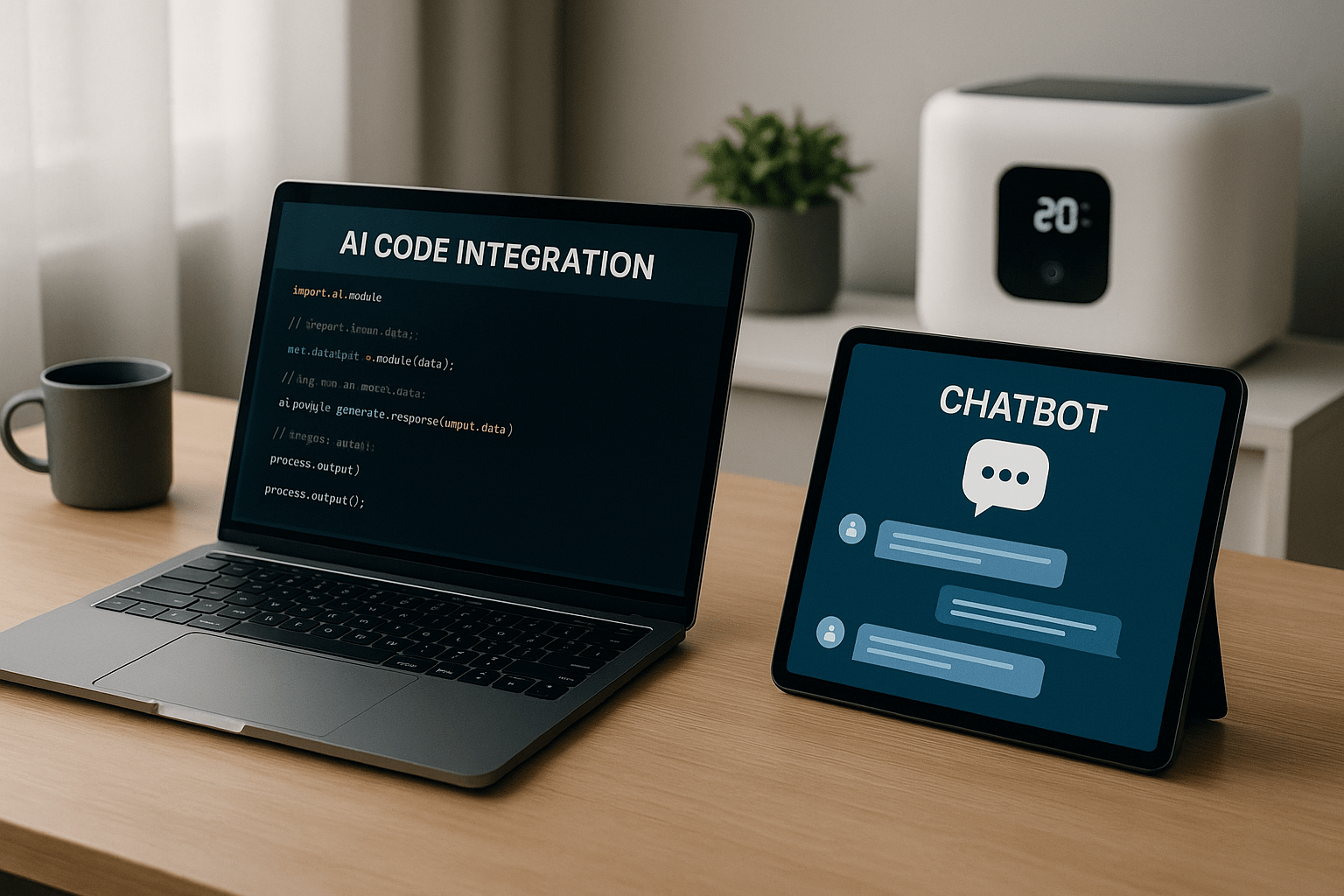IDo you continue to depend on traditional techniques for keyword research in an increasingly dynamic digital environment? With the onset of 2025, the convergence of AI technology and SEO tactics is redefining the way companies go about keyword analysis. In this article, we will explore how integrating AI keyword research can elevate your online presence, offering insights that drive better results and keep you competitive. Discover the essential techniques to harness the power of AI and align with the latest 2025 SEO trends for maximum impact.
Key Takeaways
- AI keyword research transforms traditional keyword analysis methods.
- Understanding search intent is crucial for effective SEO strategies.
- Selecting the appropriate AI tools makes the research process better.
- Using AI in your SEO process can greatly improve the outcomes.
- Long-tail keywords are most efficiently utilized through AI insights.
- Monitoring the performance of your AI plans is crucial for expansion.
Introduction to Keyword Research in 2025
As we enter 2025, the landscape of keyword research is evolving rapidly. Understanding the fundamentals of keyword research has become crucial for effective search engine optimization. This year, businesses and marketers are focusing on the integration of innovative technologies that enhance traditional methods. The role of keyword research within digital marketing trends cannot be overstated, as it drives tailored content to meet user intent.
Artificial intelligence advances are changing the way professionals go about keyword research. AI-based tools now scan a huge amount of data, and marketers can use them to easily find high-potential keywords. Search engine optimization is no longer merely a case of choosing the correct words in such an atmosphere. It is a holistic approach that predicts consumer behavior and preferences.
The importance of good keyword research in 2025 SEO plans is crucial for companies that want to stay relevant in an increasingly competitive marketplace. With search engines making constant improvements, remaining informed about the newest online marketing innovations will enable brands to build strong online presences.
Learning about the Role of AI in SEO
The use of AI in SEO is a revolutionary change in the way companies respond to their online presence. Artificial intelligence is important for interpreting large data sets, which greatly influences the discovery of ranking factors. Through machine learning algorithms, AI is able to analyze complex patterns that may go unnoticed to humans, thus improving the accuracy of search algorithms.
This leads to more personalized and efficient methods of optimizing content. AI scientifically analyzes several variables, assessing what has the greatest effect on rankings. AI is being used by most companies nowadays to forecast search trends, which changes how they interact with audiences.
In a fast-changing digital environment, it is imperative to comprehend how artificial intelligence impacts SEO strategy. Acquiring such knowledge pushes companies toward more innovative approaches for targeting the audience, leading eventually to improved online performance.
What is AI Keyword Research?
AI keyword research looks into the way that advanced technology uses artificial intelligence to automate the process of keyword analysis. This methodology, or AI-defined SEO, significantly improves the effectiveness and precision of the conventional keyword approach. Rather than depending on the labor-intensive process alone, AI algorithms go through masses of data rapidly and spot trends as well as useful keywords used by your audience.
Defining AI in the Context of SEO
AI in the context of SEO is a range of tools and models that have been created to understand search engine algorithms and user behavior. AI keyword research uses machine learning to analyze data better than traditional methods. This sets up an evolving system for keyword optimization, generating actionable insights that can be used directly by marketers on their content strategy.
Benefits of Using AI for Keyword Research
The benefits of using AI in keyword research are immense. One of the main keyword advantages is the immense boost in efficiency, enabling marketers to save valuable time. Greater precision in trend forecasting enables brands to remain ahead of market changes. Also, AI tools enable keywords to be customized to certain audience groups, so content directly connects with targeted users.
How AI Analyzes Search Intent
Knowing search intent is a vital aspect of online marketing and search engine optimization. When a person types a query into a search engine, they are motivated by certain needs. AI evaluation improves deciphering the intentions behind this by analyzing humongous volumes of search data. Using machine learning algorithms enables AI to detect patterns in queries from users, giving more insight into what exactly the user is looking for.
AI software is able to distinguish between types of search intent, including informational, navigational, and transactional. For example, a search for “best coffee maker” is likely to be for purchasing purposes, whereas a search for “how to brew coffee” is to learn. By creating this contextual awareness, marketers are able to customize their keyword strategies to be more closely aligned with user requirements.
The use of AI in processing user requests does not just halt with categorizing but continues to comprehend the subtleties of each request. In one research, AI tools showed a remarkable capacity to identify variations and synonyms for a given search intent. This is not only widening the scope for content optimization but also the relevance of keyword suggestions, leading to improved engagement.

Picking the Best AI Tools for Keyword Research
Picking the optimal AI tools for keyword research can make all the difference in your SEO strategy. Equipped with the correct keyword analysis tools, you get insight that can significantly improve your website’s search visibility. Picking from a range of available options demands a well-balanced consideration of their functionalities and features.
Best AI Tools for Keyword Analysis
Some of the most respected platforms in the world of SEO software are:
- SEMrush: Recognized for its vast database and powerful keyword analysis features, SEMrush assists you in finding new keywords and tracking your competitors’ tactics.
- Ahrefs: Exceptional keyword performance and backlink insights are provided by this tool, which has been a favorite among SEO professionals.
- Moz: Using its easy-to-use interface and efficient keyword analysis capabilities, Moz presents useful resources for improving SEO tactics.
Criteria for Choosing the Best AI Tool for Your Requirements
When comparing various AI tools, use the following selection criteria:
- User Interface: An easy-to-use and intuitive interface provides a seamless user experience.
Data Accuracy: Accurate data is essential to facilitate effective keyword research and long-term planning.
- Price: The price of the AI tool should be within your budget and provide the features you require.
Implementing AI in Your SEO Strategy
In today’s digital landscape, incorporating AI integration into your overall SEO strategy has become crucial. AI-driven SEO tools provide enhanced capabilities for analyzing vast amounts of data, identifying trends, and predicting consumer behavior. Effective optimization techniques involve a blend of these advanced technologies and human creativity, allowing content creators to fine-tune their strategies for better search engine visibility.
To properly integrate AI tools into current SEO methodologies, the following approaches are recommended:
- Evaluate your current SEO practices and discover where AI can provide added value.
- Use AI-based SEO tools that support your current procedures, making sure they augment instead of replacing human judgment.
- Periodically re-examine your strategy for integrating AI to adjust to new trends and technologies within the SEO environment.
This combination of human intelligence and AI tools not only improves the quality of the content but also the overall performance within search results. By leveraging the strength of AI-based SEO, companies can ensure they remain competitive in the ever-changing digital market.
Practical Steps to Conduct AI Keyword Research
Effectively performing keyword research with the help of AI tools demands a precise approach. The following section summarizes the key steps for a successful AI setup, allowing you to derive meaningful insights from your keyword data collection and analysis.
Setting Up Your AI Tool
To set up the AI, choose a strong tool specific to keyword research. Use the following steps to properly configure:
- Register and set up an account with your preferred AI keyword tool.
- Set up settings in line with particular niche needs, such as geographic targeting and linguistic preferences.
- Get used to the interface and the features provided by undertaking tutorials or demo sessions.
Gathering and Analysis of Data
Proper gathering and analysis steps are crucial for obtaining actionable insights. Follow the following strategies:
- Make use of the tool’s functionality to undertake exhaustive keyword data gathering from multiple sources, such as search engines and pertinent content.
- Examine the data gathered to spot trends, search volume, and competition.
- Interpret the findings with care. Identify keywords suitable for your content strategy while responding to user intent.
Assessing Keywords with AI Insights
To enable successful keyword analysis, the AI insights become the defining factor. Through these insights, marketers are able to make data-driven decisions on metrics that count. By understanding search volume, it’s possible to approximate interest in particular subjects. This metric is vital in determining what keywords of value exist in the competitive scenario.
Data interpretation is needed to understand the intricacies of keyword performance. Understanding levels of competition and keyword relevance guarantees that the keywords used are aligned with the target audience’s requirements and overall content strategy. High competition may signal an oversaturated market, while lower competition may signal potential for niche content.
Using AI insights allows for a better understanding of the ranking potential of different keywords. With trend and user engagement-observing tools, marketers can then hone in on their lists with the terms that drive traffic, as well as convert visitors. This plan maximizes the chances of being noticed in search engine results, which in the end brings more traffic to your site.
AI Keyword Research Compared to Traditional Keyword Research
The face of keyword research has drastically changed with the advent of AI and how marketer now goes about formulating their strategy. A comparison of AI with traditional research gives us clear indications of what each offers over the other. Knowing these differences will make it easier to choose the best keyword selection tools for particular requirements.
Key Differences Between Approaches
In comparing AI keyword research and traditional approaches, the following stand out:
- Speed: AI tools can process vast amounts of data in seconds, allowing for quick insights.
- Efficiency: Automation streamlines the research process, freeing up time for deeper analysis.
- Data Handling: AI can analyze trends and patterns with greater precision, uncovering opportunities often missed by traditional methods.
When to Use Each Method
Choosing between AI and traditional techniques depends on your specific objectives:
- If you need rapid insights and scalable solutions, AI is the right choice.
- For subtle insight or special market studies, older methods will add a useful perspective.
- Blending the two can be more effective, using AI speed with the in-depth capabilities of older research.
Utilizing AI for Long-Tail Keywords
Long-tail keywords are an integral part of contemporary SEO practices. Such special phrases, generally consisting of three or more words, identify targeted markets well. The importance of long-tail keywords stems from their potential to catch focused traffic and match the exact search intentions of users.
Leveraging AI strengths in long-tail keyword identification can significantly boost the visibility of a website. AI applications search through massive amounts of data, identifying the search habits and tendencies of target audiences. Using this information, an effective keyword targeting plan can be created, targeting less competitive, high-conversion keywords.
As part of putting an AI-based strategy to work, the following plans can be utilized:
- Narrow your focus: Target specific, less generic words that your target market will identify with.
- Analyze user intent: Understand what users are looking for to tailor your content accordingly.
- Optimize content: Once you identify effective long-tail keywords, create high-quality, relevant content that includes these phrases.
- Monitor performance: Utilize AI tools for ongoing analysis of keyword performance and adjust your strategy as necessary.
By utilizing AI in your keyword targeting, you are able to unlock the potential of long-tail keywords, enhancing user engagement and boosting conversion rates. This approach places your brand in a favorable position in a crowded online environment.
Measuring the Success of Your AI Keyword Strategy
To ensure your AI keyword strategy is on the right track, it is vital to utilize effective measurement metrics. These metrics help assess the impact of your efforts on search visibility and overall traffic. A few essential measurement metrics to consider include organic traffic growth, ranking improvements, and engagement rates. Each of these indicators provides a snapshot of your strategy’s performance.
Keyword performance monitoring is key to knowing which strategies are paying off. Monitoring which keywords generate the most traffic and conversion allows you to adapt over time. Through the use of many analytics programs, you gain an understanding of user activity and keyword performance and can make your content adapt to the demands of audiences. Monitoring your AI strategy success involves constant monitoring and a close watch of these metrics.
Let’s first define the goals. Is it general web traffic, or increasing lead generation due to targeted search queries? With a specific set of goals in mind, you can narrow down exactly what type of metrics you need to track. Thus, this narrowed-down approach also guarantees precise assessment and adjustments as necessary.

Future Trends in AI and Keyword Research
The future of AI promises great things for keyword research, fueled by exponential technological growth. As AI develops, we can expect drastic changes in how we engage in keyword strategy. New keyword research trends highlight the importance of tools that read user intent, narrowing the way we target precise audiences.
Natural language processing (NLP) is leading the way in this revolution. More sophisticated NLP abilities allow AI programs to understand sophisticated inquiries and context better, making keyword suggestions more accurate. This innovation allows marketers to better match content with search behavior.
Moreover, search engine algorithms are becoming more sophisticated, emphasizing the need for keyword strategies that adapt to evolving standards. The future of AI in keyword research suggests that real-time data analysis will become increasingly crucial, allowing businesses to pivot their strategies as consumer behavior changes.
Here, user behavior will be key to understanding and using AI-powered insights. If they anticipate trends and changes, companies can design messages that speak to people. Maintaining a keen watch over those patterns will make them all stay competitive in the ever-changing SEO environment.
Conclusion
In short, incorporating AI keyword research into your 2025 SEO plan is not a fad; it’s mandatory for getting considerable online exposure. This article has described how AI makes the process better by examining search intent, finding useful long-tail keywords, and offering actionable insights that conventional practices usually miss. With the advent of advanced AI tools, marketers can now automate their work and enhance their content planning efficiently.
As you apply these tactics to your online marketing efforts, keep in mind that the future of SEO 2025 is dependent upon harnessing sophisticated technologies. Utilizing AI keyword research equips you to compete and keep up with the constantly changing digital ecosystem of search engines. The possibilities for long-term success are vast; it just requires an open mind to innovate.
In summary, the advantages of utilizing AI tools for keyword research are simply too many to count. Whether you are a practicing pro or an up-and-comer, leveraging these assets will stretch your capabilities and streamline your SEO efforts for years to come.
FAQ
What is AI keyword research?
AI keyword research means the use of artificial intelligence technology to analyze and create keyword information. This process improves conventional methods by offering more in-depth information on search patterns, users’ intent, and keyword suitability.
How can AI enhance SEO practices?
AI can dramatically improve SEO practices by examining large data sets to foretell search activity, tailor content for particular viewers, and find profitable keywords faster than conventional methods.
What are the advantages of applying AI tools for keyword analysis?
Advantages include greater precision, improved efficiency in data processing, being able to discover long-tail keywords, and deeper insight into consumer search behavior that can result in better engagement and increased conversion rates.
Which AI tools are optimal for keyword research?
Some of the best AI keyword research tools are SEMrush, Ahrefs, Moz, and Google Keyword Planner. Each has distinct features that suit various SEO requirements, from competitive analysis to tracking real-time data.
What is the best way to select the most appropriate AI tool for my SEO requirements?
When choosing an AI tool, look at the user interface, data precision, features offered, support, and price plans. Determining your particular SEO objectives will help narrow down the most suitable.
What do I need to prioritize when performing AI keyword research?
Prioritize establishing your AI tool efficiently, collecting thorough data on keyword performance, determining search intent, and reviewing outcomes to guide your content and marketing strategies.
How can long-tail keywords benefit my SEO strategy?
Long-tail keywords are more specific and less competitive, making it easy to target the niche market. AI can assist in the identification of such keywords, enabling businesses to communicate with users more effectively and increase conversion rates.
What are the key metrics for measuring my AI keyword strategy?
Important performance indicators (KPIs) to monitor are search volume, keyword ranking, organic traffic increase, click-through rates (CTR), and conversion rates. Following these metrics will allow you to optimize your current keyword strategies.
What are some trends in AI that I should be looking out for with keyword research?
Some trends to look out for include the development of natural language processing, more powerful user behavior analytics, and constant upgrades in AI algorithms that affect search engine results pages (SERPs) and consumer interactions.
How is AI keyword research different from conventional techniques?
AI keyword research is quicker and more effective in handling large amounts of data than conventional techniques. Although AI is superior when it comes to predictive analytics, conventional techniques might still hold value in niche circumstances or for an underlying keyword strategy.











Leave a Reply